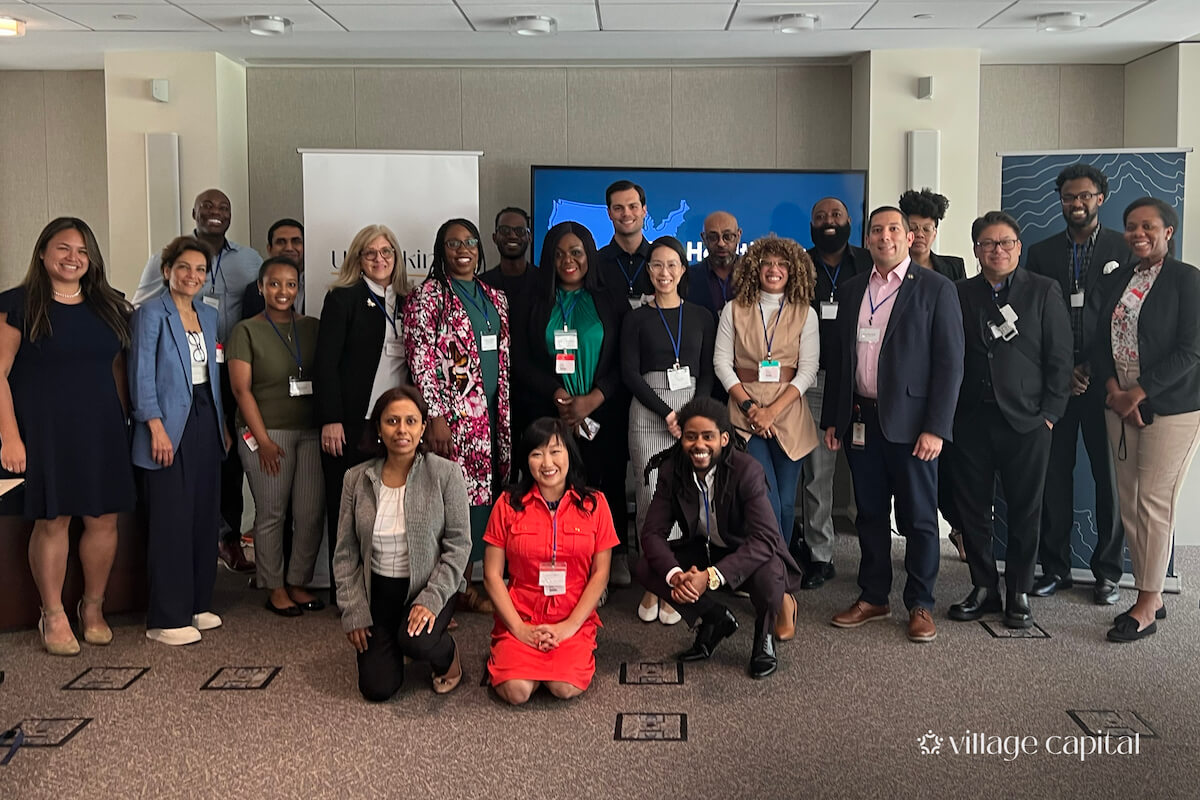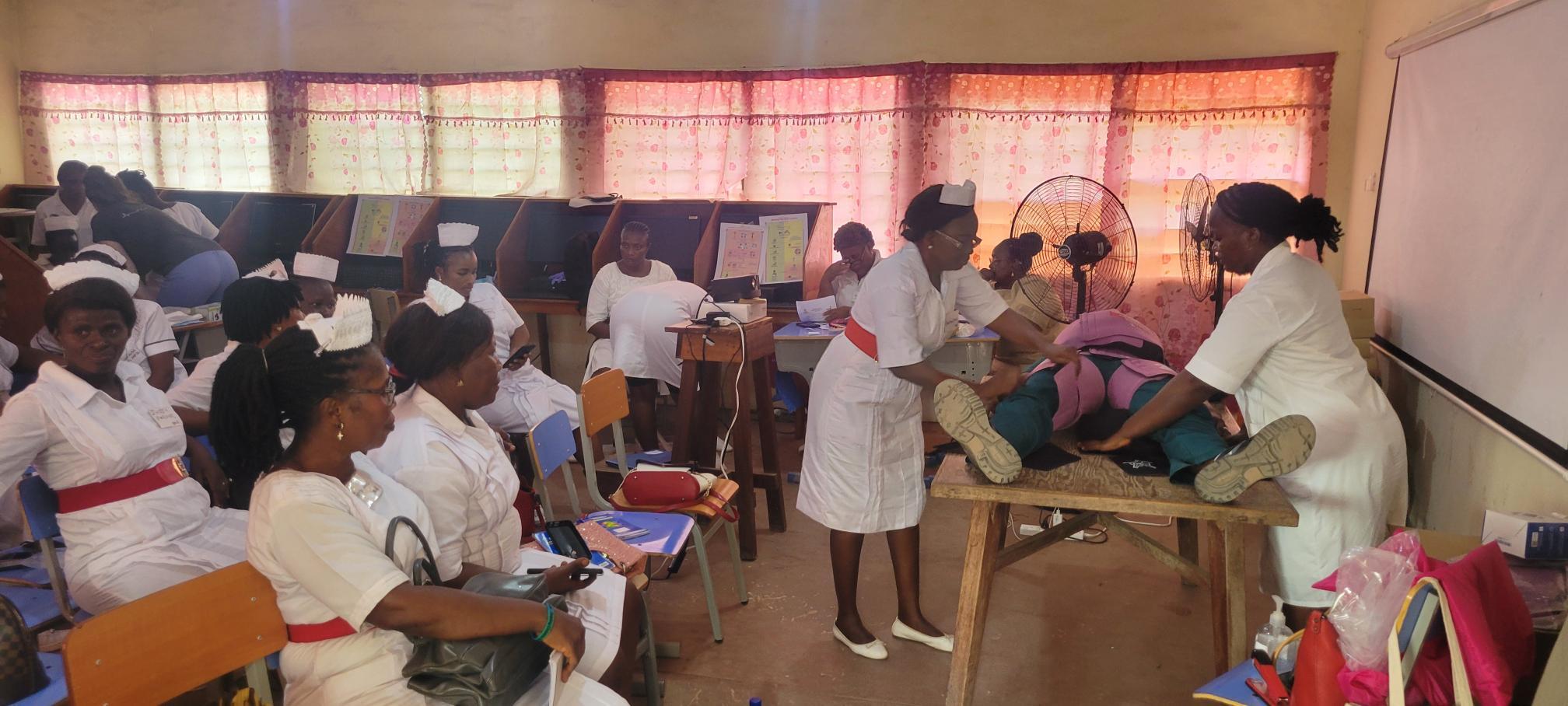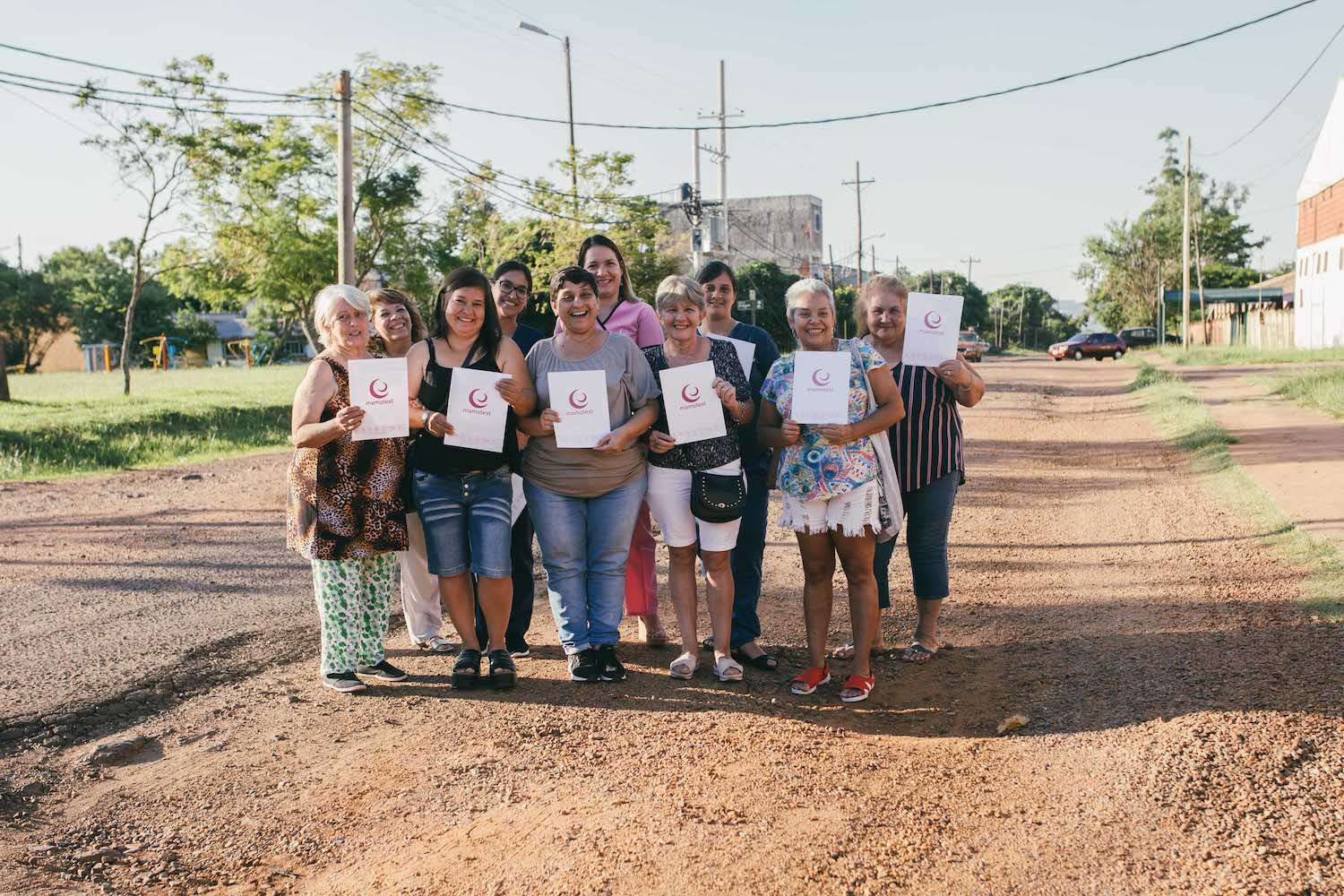What does investing at the nexus of climate and gender really look like? This is the question at the heart of Heading for Change, the legacy project of gender-smart investing pioneer Suzanne Biegel, who passed away in September.
Suzanne was passionate both about moving capital to climate solutions and integrating a gender lens into those solutions to make them stronger and smarter. The donor advised fund that she founded with her husband Daniel Maskit aims to put those ideas into practice and provide a living case study for other climate and impact investors.
Over the past six months, the Heading for Change team has worked to hone our climate + gender investing framework to honor Suzanne’s mission and intent. We’re excited to announce our first five investments, and to share our process for climate + gender investing with the investor community.
Building a portfolio
Heading for Change’s first investments exemplify our “women as agents of change” investment thesis, which focuses on the power of women’s insights and innovations in developing and scaling climate solutions. They also reflect our commitment to building a climate + gender portfolio that is geographically and thematically diverse, and which includes a mix of emerging and established fund managers, types of capital, and risk/return profiles.
- AIIM: A leading climate technology fund focused on traditionally overlooked climate sectors that are poised for disruption and growth, including digital systems, alternative materials, low-carbon food and smart agriculture. US-based and woman of color-owned, AiiM has a strong gender lens already built into their sourcing, screening and investment processes.
- Supply Change Capital: A diverse and women-led, US-focused venture fund investing in sustainable and resilient food systems. Supply Change is committed to addressing traditional investment bias in order to build a deal pipeline and portfolio that harnesses the power of the communities most affected by the climate crisis.
- MCE Social Capital’s MESA Fund: A blended capital fund investing in emerging markets microfinance organizations and fintechs to close the $200 billion funding gap in the agriculture sector, and a strong commitment to integrating a strong gender lens in their work.
- Just Capital: A global fund focused on decarbonizing the world’s highest emitting and hardest-to-abate industries, such as shipping, industrials, and cement, by investing in proven solutions and helping them achieve widespread market adoption.
- WaterEquity: An emerging markets-focused debt fund investing in affordable financing for household-level water and sanitation solutions in low-income communities, creating transformative impact for women.
The reason we focus on climate funds with a gender lens, rather than gender funds with a climate lens, is to prioritize the urgency of catalyzing capital to climate solutions. We also feel this is the approach that allows us to add the most value to portfolio funds.
The baseline qualification criteria for our investments is as follows:
- Funds must invest at least 75% of their assets in climate and nature-related investments, with a focus on transformative solutions, scalability, resilience, and addressing the needs of the most impacted communities (with the exception of some multi-thematic funds).
- Funds must be at least 30% owned or led by women, and 30% of the investment team must be women, with a strong preference for gender diversity on investment committees. At the portfolio company level, at least 30% of investments must meet 2X criteria for female ownership, leadership and employment.
As we learned early in our screening and diligence process, these factors can’t be looked at in isolation if we hope to truly leverage gender as an amplifier for climate impact. Nor do numbers alone tell the full story about a fund and its impact. It’s crucial to understand the interplay of the climate and gender themes.
Key questions we consider in diligence include:
- How are funds incorporating strategies and processes that bring women to the forefront of activating climate solutions as entrepreneurs, leaders, employees, across the supply chain and as consumers?
- How are funds addressing gender-specific climate/nature risks and enhancing women’s resilience and capacity to adapt to climate and nature change?
- Are funds looking for deals that actively create opportunities for women as agents of change, and considering the implications of gender in climate solutions?
- Do funds look for deals in which women are actively involved in the creation of climate solutions, and do they understand the links between gender and a given solution’s success?
We seek fund managers that not only view women as beneficiaries of climate solutions, but which invest in climate solutions driven by women’s insights and intelligence. We want to see that managers understand that their investments have a higher chance of success – both in financial and impact performance – if women are engaged in the creation of their portfolio solutions.
Climate and gender smart
Our framing around “women as agents of change” adds a new layer to our due diligence process, opening up conversations with fund managers about how the businesses they invest in use gender-smart investment practices to amplify climate impact; how a lack of gender diversity relates to risk; and how they account for the impact of their investments on women and girls in the communities their businesses work in.
Diving into these questions with our early portfolio of fund managers uncovered some powerful examples of climate + gender work in practice. MCE Social Capital shared that female farmers in its portfolio are more open to adopting new practices to reduce climate and market risk than their male counterparts. AiiM’s unique approach to mapping the climate ecosystem, including developing women and climate integrated research-driven roadmaps, helps to steward opportunities for women at every point along the climate value chain. Supply Change helps portfolio companies to better support women in their workforces and supply chains.
These managers also helped us refine our definition of best in class climate and gender funds, which we will apply to future investments.
Shally Shanker at AiiM, for example, reminded us of the specific barriers women founders face in maintaining majority ownership – making ownership a potentially misleading indicator of gender performance in growth stage funds. With this insight in mind, we broadened our focus to also look at qualitative measures of a gender-smart portfolio, like how the fund managers are helping women founders and CEOs in their portfolios maintain equity and control in follow-on financing rounds, as Shally does for the women leaders in her portfolio.
Shayna Harris and Noramay Cadena at Supply Change exemplify how a fund manager doesn’t need to explicitly name itself as a gender-lens investor to have deep gender impact. They also reminded us of the importance of applying a culture and diversity lens to climate deals in order to ensure a just transition to a green economy.
Given the nascent stage of climate + gender-lens investing, building a portfolio that reflects a diversity of geographies, themes and fund sizes will mean investing in funds that are at different stages of climate-gender integration. We believe this is an important learning to share with other investors interested in integrating climate and gender lenses: if we invest only in climate funds that already have strong gender criteria, we will be restricted to a very small number of funds, mostly in the Global North.
For Heading for Change, this would greatly undermine our theory of change—namely, our belief that the challenges faced by women are best solved by igniting the insights and intelligence of the women who are most directly impacted. This is especially true in the Global South, as well as in diverse communities in the Global North that are currently being left behind by the climate movement.
Taking a broader look across the climate-gender integration spectrum also opens up more opportunities to influence the larger investment market, which is critical, given the need for the effective and rapid redirection of investment to climate solutions. Our work is as much about supporting climate investors in deepening their gender analysis, as it is about supporting fund managers that are already doing this work well.
Over the next 14 months, Heading for Change intends to make another 15 private market fund investments with the $3.5 million that we’ve raised. That’s just the beginning. As we continue to grow our endowment, we plan to continue deploying capital and sharing what we’re learning with the investment community, bringing to life Suzanne’s vision of catalyzing investment at the nexus of climate and gender.
Disclosure: Heading for Change is a sponsor of ImpactAlpha’s Climate + Gender coverage.











